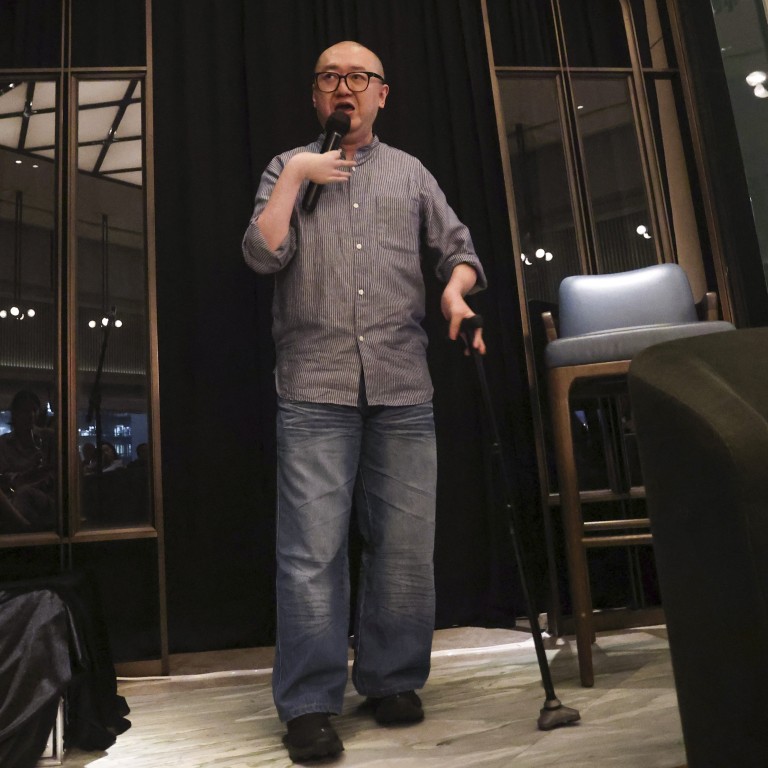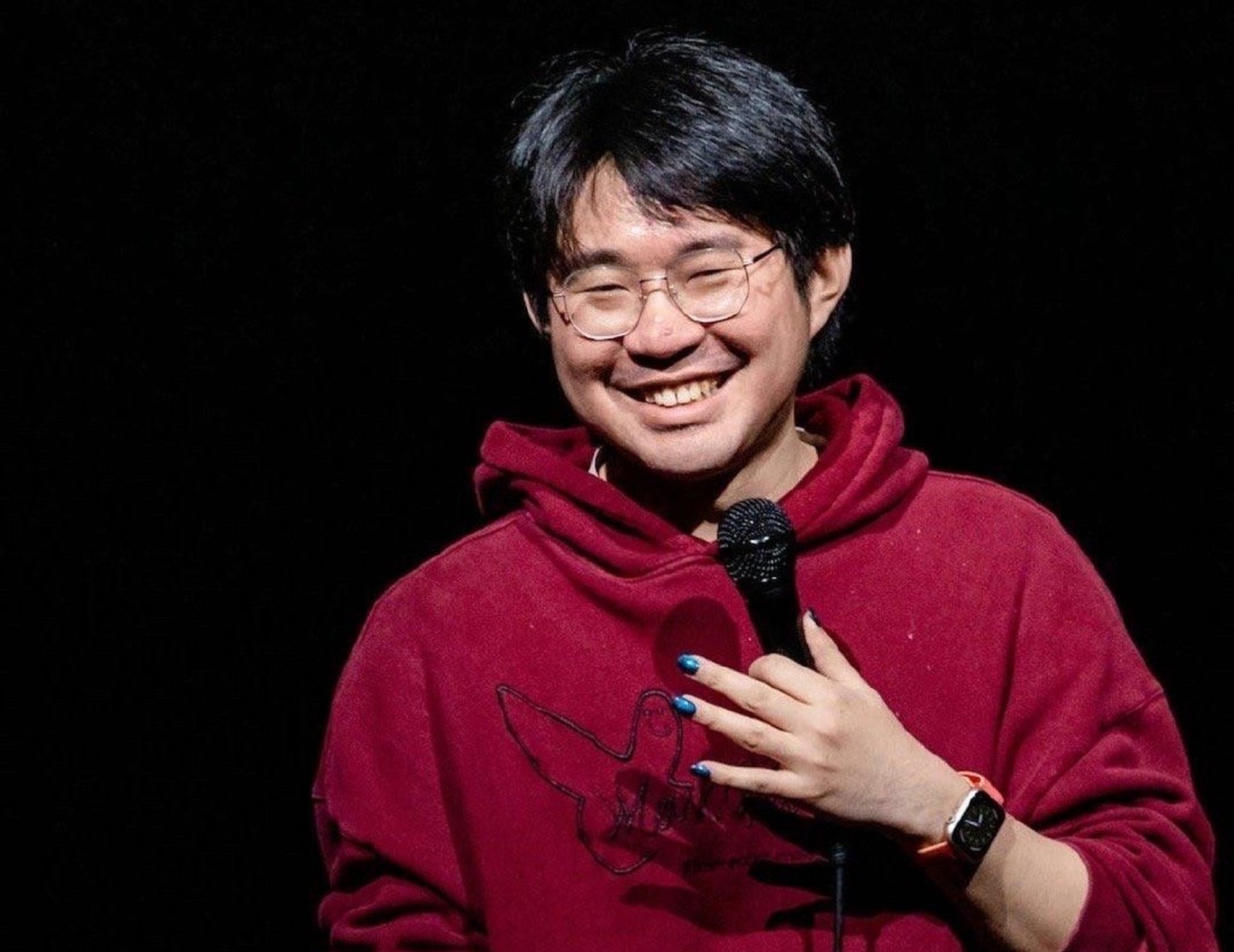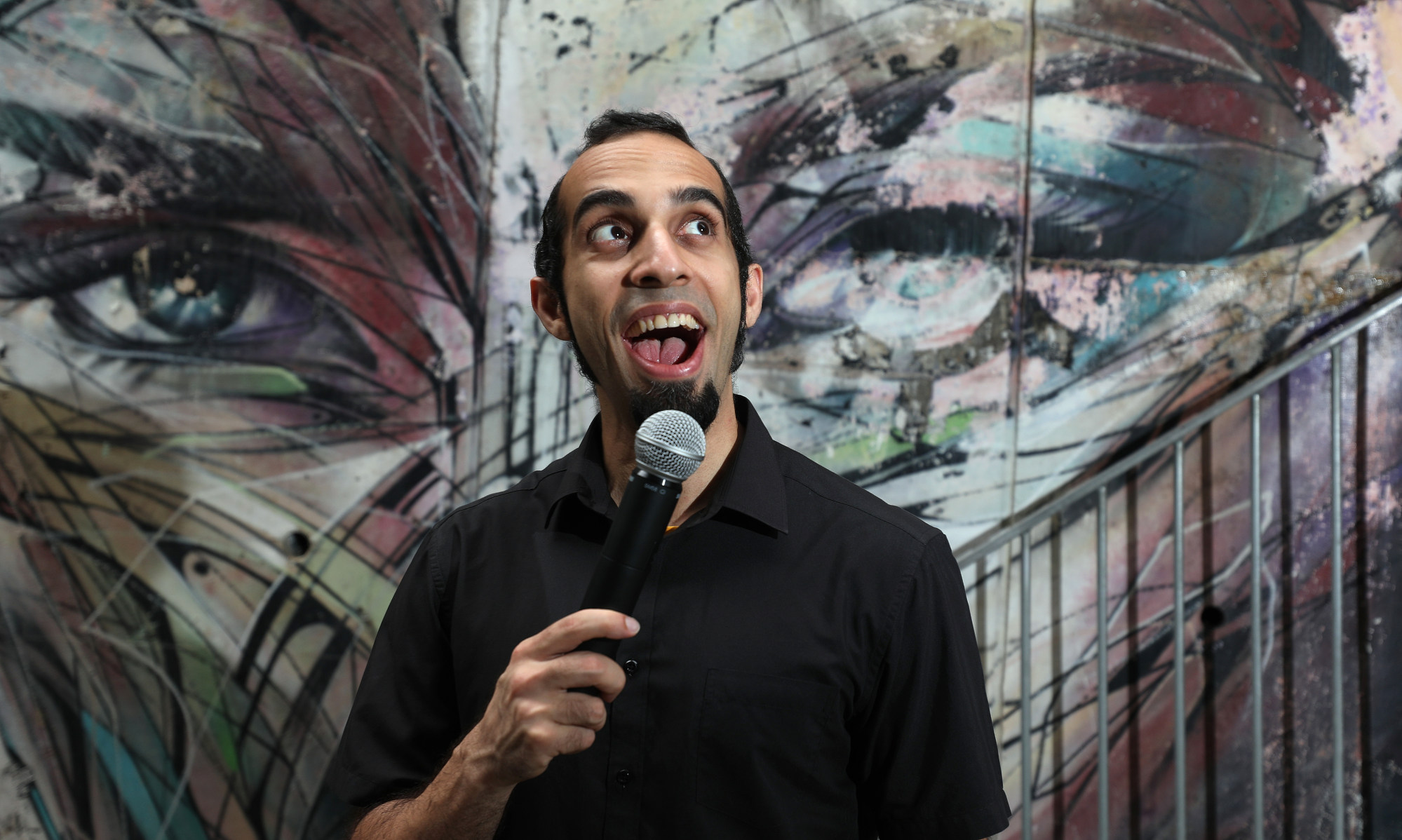
How to get laughs in Hong Kong: veteran comedian Steven Lee talks about living with disability, building audiences and dealing with ‘internet mobs who hurt free speech’
- Trilingual comedian says local scene is still small compared with other major cities, but hopes it can gain traction following end to Hong Kong’s pandemic curbs
- After performing in America and Hong Kong, Lee says comedians have to struggle with being targeted by worldwide ‘internet mob’
Freeing a hand from one of his crutches and grabbing the microphone, performer Steven Lee opened his Thursday night gig at a Hong Kong comedy bar with a joke that sets the tone for a routine that touches on personal struggles, as well as social and racial issues.
“I am not disabled, it is just my arms were made in China,” the 46-year-old told the crowd, who responded with a burst of laughter.
The trilingual comedian is building a name for himself in Hong Kong after spending 10 years performing in Hollywood, only returning to the city in 2020 during the coronavirus pandemic.
B*****s in Stitches: Hong Kong’s female comics are loud, proud and funny
Lee is among those hoping comedy will become more popular in Hong Kong, especially now that social-distancing rules have been axed following the end of the pandemic.
“Hong Kong’s comedy circuit is really small. In major cities, it is common to find seven or eight full-time [comedy] clubs, but Hong Kong only has one,” Lee told the Post earlier this week, referring to the city’s TakeOut Comedy Club.
The performer, who is fluent in Mandarin, Cantonese and English, said the undeveloped comedy scene could be due to performers receiving little airtime on major television networks, Hongkongers’ fast-paced lifestyles and their notoriously long working hours.
“In New York, there are hobbyists who come out to hit the mic from time to time. It’s a tradition. But compared with Asia, especially Hong Kong, Chinese people are famous for working overtime mostly without [extra] pay, so the numbers of hobbyists are way, way less,” he explained.
In his routine, Lee talks about growing up in Hong Kong, where he was born after his parents illegally crossed into the city from mainland China. He also tells audiences about being diagnosed with amyoplasia, a condition that typically starts in the womb and affects limb muscle development.
Why Hong Kong’s stand-up comedy scene is no laughing matter
As a boy, Lee attended Hong Kong Red Cross John F. Kennedy Centre, a special education school in Sandy Bay, before his mother encouraged him at 17 years old to apply for an exchange programme to the United States, run by international NGO AFS Intercultural Exchange.
In 1993, the comedian was one of few Hongkongers and only one of two applicants with a disability to be selected for the programme that year.
As part of the exchange, Lee spent 10 months living with a family in Kansas and attending school there. While introducing himself during art class, he said he had a life-changing experience.
“I said I came from a school for the disabled, and my teacher asked me why I defined myself like this. I realised then that I was in a place where people think about me differently and that my disability did not need to define me,” he said.
More than a decade after his first visit, Lee successfully applied for permanent residency in the United States and headed back in 2009. To keep himself busy, he took up performing.
“I actually started doing comedy as a way to get out of the house when I was in America,” Lee said.

Honing his routine by attending classes and performing across Los Angeles, Lee’s career picked up when he was asked to bring his act to The Comedy Store, a venue on Sunset Boulevard that has hosted some of America’s comedy greats.
After his father died in 2019 and his Hollywood gigs were all cancelled during the pandemic, Lee decided to return to Hong Kong, where he now cares for his mother, who has dementia.
Asked if he felt comedians needed to choose their words carefully while doing gigs in the city, he said veteran performers had always done so in both the US and China to ensure they could be booked at clubs or events.
In May, a Chinese entertainment group was fined 1.3 million yuan (US$184,000) after one of their performers made a joke that likened the People’s Liberation Army to dogs chasing a squirrel, casting a shadow over the country’s comedy scene.
Authorities also banned artists with Shanghai Xiaoguo Culture Media from performing in Beijing, while Li Haoshi, the comedian who told the joke, is being investigated by police.
‘Race traitors’: are Chinese diaspora comics ‘discrediting the motherland’?
However, Lee said he was more concerned by the worldwide phenomenon of the “internet mob”, with comedians getting “trashed online” by social media users posting controversial clips of performances from a long time ago.
“There’s no fair trial where you can defend yourself. You don’t know who they are but they know who you are. That’s hurting freedom of speech way more,” he said.
Lee also said it would be good for the local comedy scene if Hong Kong continued to hold off from having an official censorship body.

Agreeing with Lee, an award-winning Hong Kong comedian Vivek Mahbubani said: “I think giving people rules of what they can and cannot say will definitely affect the comedy scene. It is going to instil self-censorship and people might be afraid to try in case they get in trouble.”
While stand-up comedy had never taken root in Hong Kong culture before, Mahbubani said, he could sense a change was under way.
“We never grew up watching it on television like people in the West. But there’s a big appetite for it right now. On Netflix and YouTube, there are a lot more Asian people doing stand-up comedy, it will not be long before comedy here is on a par [with the West],” he said.
Fellow comic Nina McGrath, who followed Lee’s most recent set at The Upper House, a restaurant and bar in Admiralty, said she also felt comedy was gaining traction locally.
“Both the English and Cantonese comedy scenes are thriving,” she said. “There are more comedy events and more people wanting to perform.”

